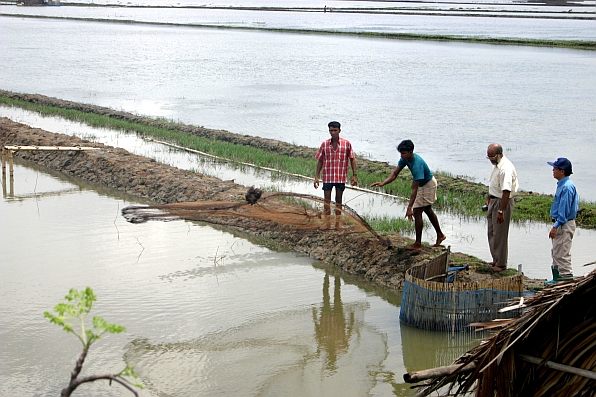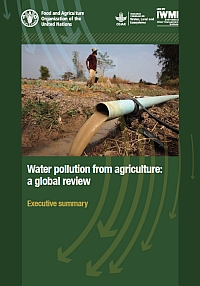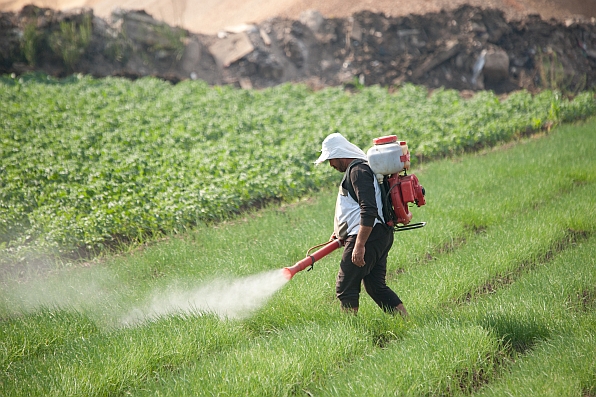Executive summary of a forthcoming book launched at World Water Week 2017
Participants in World Water Week 2017 received a useful and eye-opening overview of the major role that agriculture plays in the steady deterioration of water quality in many countries. This was the focus of the launch – on the event’s opening day, August 27 – of the executive summary of a forthcoming book titled Water Pollution from Agriculture: A Global Review.

Photo: Chu Thai Hoanh / IWMI
The summary was published jointly by the Food and Agriculture Organization of the United Nations (FAO) and the CGIAR Research Program on Water, Land and Ecosystems (WLE), led by the International Water Management Institute (IWMI). The book’s first author, Javier Mateo-Sagasta, leads IWMI’s research group on water and health.

Agricultural pressures on water quality – from crop and livestock production as well as aquaculture – have greatly intensified in recent decades, with significant negative impacts on human health and the environment. Aquaculture alone has expanded 20-fold since the 1980s. This and other changes derive from rapid population growth, dietary change and rising food demand.
The executive summary briefly reviews the “unsustainable trajectory followed by agri-food systems” and draws attention to “hotspots where crop production, livestock and aquaculture may be the key contributors to the degradation of water quality.” Next, the authors examines the main agricultural contributors to water pollution: nutrients, pesticides, salts, sediments, organic matter, pathogens and emerging pollutants that include substances such as antibiotics and growth hormones.

Turning to the issue of how to manage water quality more effectively, the summary underlines the value of modelling, supported by monitoring, to achieve a better understanding of current conditions and their impacts, and to ensure that “policies, strategies and actions are on the right track.”
The document then describe a “comprehensive package of responses,” some of which (reducing food waste, for example) are designed to influence the key drivers of unsustainable intensification of agriculture, while others (particularly policies) aim to creative incentives for the adoption of on- and off-farm practices that prevent pollution at its source. Research and data are key requirements for ensuring that such measures are effective.

